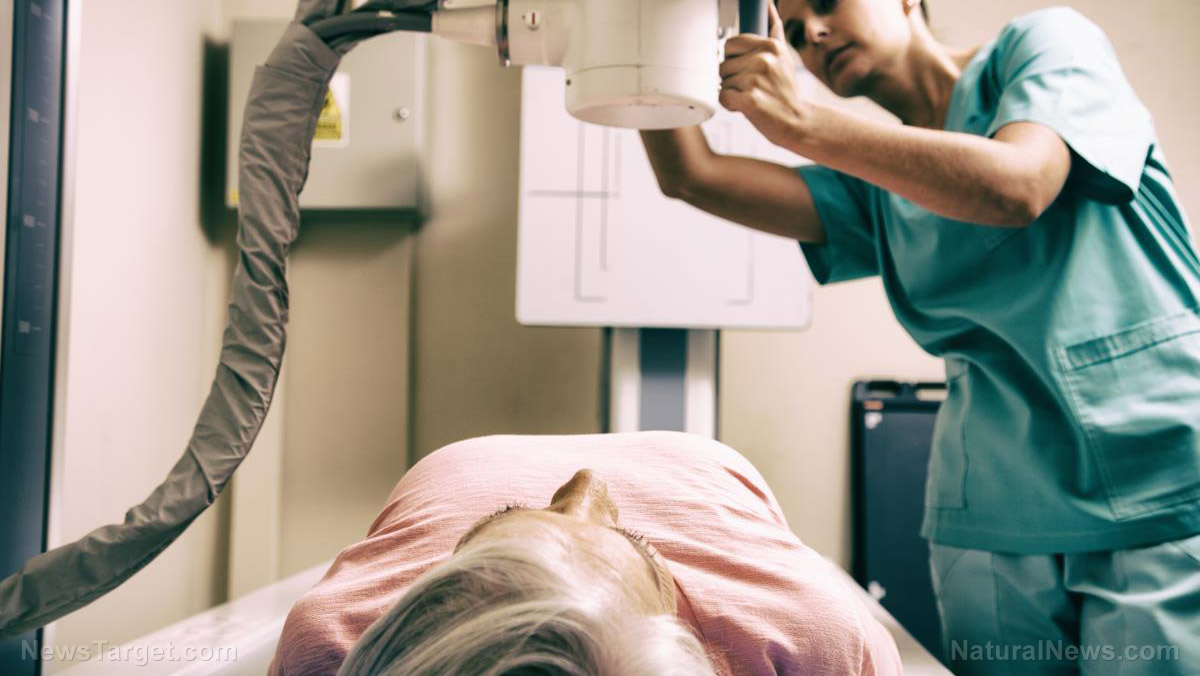Some physicians refuse to promote healthy lifestyle changes in order to avoid stressing cancer survivors, reveals shocking study
10/21/2020 / By Virgilio Marin

A recent study published in the journal Cancer found that some physicians fail to encourage cancer survivors to adopt a healthy lifestyle.
Researchers from Northwestern University, Howard University and the University of Miami say that cancer specialists are afraid of overwhelming and distressing cancer survivors even though they know that their patients need to make healthy lifestyle changes even after they’ve beaten cancer.
Cancer specialists not promoting healthy lifestyle
Cancer survivors have a higher risk of cardiovascular disease. For that reason, physicians are advised to encourage patients to adopt healthy lifestyles to help protect their long-term health. Prior to the study, however, physicians’ adherence to this guideline was unclear.
To investigate, the researchers surveyed 30 primary care physicians, 30 cancer specialists and 31 urologists, gynecologists and dermatologists who treat survivors of prostate cancer, breast cancer and melanoma, respectively. In addition, interviews were conducted with 12 oncologists who were sent the survey.
The team found that only 26.7 percent of the cancer specialists and 9.7 percent of the other specialists reported promoting healthy lifestyle changes, such as eating a healthy diet and quitting smoking. Meanwhile, 90 percent of the primary care physicians said they gave those recommendations.
The cancer specialists said they were afraid that promoting healthy lifestyle changes would be too much for the patients. Most of them believed that at least half of cancer survivors would take their medications properly to prevent the recurrence of cancer. However, they believed that their patients would not take their medications anymore if they were trying to lose weight.
They also said that they lacked the time and training to make lifestyle and nutritional recommendations to patients.
“Even though oncologists clearly believe that cancer survivors should adopt a healthy lifestyle, they don’t have the time to address more than cancer care,” said lead author Tammy Stump of Northwestern University Feinberg School of Medicine.
The researchers believe that healthy lifestyle support is best provided as part of integrated survivorship care, delivered by experts trained in nutrition, physical activity and behavioral coaching. Cancer specialists can contribute to the development of a healthy lifestyle program that meets the specific needs of cancer survivors. (Related: American Cancer Society admits conventional cancer treatment causes more cancer.)
Medical students lack training in nutrition counseling
Another study, published in the Lancet, found that nutrition is not sufficiently integrated into medical education worldwide. Researchers reviewed 24 studies from several countries that assessed the knowledge, attitudes, skills or confidence in nutrition care of recently graduated or current medical students.
The review noted that medical students wanted to develop their skills in nutrition care but perceived that their education did not equip them to achieve that goal. The students explained that nutrition was underprioritized in the curriculum as faculty members lacked interest and expertise in nutrition education. In addition, they said that there were only a few examples of nutrition counseling during clinical years to serve as a model.
Some of the reviewed studies also showed that students uniformly lacked the required nutrition knowledge, with half of the medical students failing the test in one study. While there were some curriculum initiatives, most of these were employed opportunistically as a one-off activity rather than integrated into the medical curricula.
The researchers said that the current state of nutrition education will likely affect the standard of care provided to patients. They underscored the importance of institutional commitments to making nutrition education compulsory in medical training and establishing standards of nutrition knowledge.
Every year, around 11 million deaths can be attributed to poor diet, making it one of the leading risk factor for death worldwide. Many countries recommend applying nutrition knowledge in practice to manage lifestyle-related chronic disease and other diet-related conditions.
BadDoctors.news has more on bad medical practices.
Sources include:
Tagged Under: bad doctors, cancer, cancer survivors, cancer survivorship care, healthy lifestyle changes, medical education, medical malpractice, nutrition education
RECENT NEWS & ARTICLES
COPYRIGHT © 2017 SCIENTIFIC NEWS




















